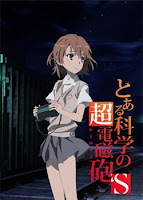My whole life I never got drunk - in a true sense of the word. The closest thing I ever get from being intoxicated to alcohol is during our little Christmas soiree with a glass of dry Spanish red wine mixed with iced tea. My best friend concocted them together so it would be manageable to sip. But other than that, nada for me. I can only handle sweet red wine and white wine, but beer and any hard liquor is a major no-no for me. It may sound bull but these are my following reasons why I chose to stay clean from alcohol:
1. No to puke and vomit.
I only vomited once or twice in my life and I hate the process of having the food I already swallowed from my mouth - stored in my stomach to be under premature evacuation other than my ass. The taste of vomit is gross and once it got out it smells yucky and it would stink all over you.
2. No to Hangover
Probably I do not know what it feels like to have a hangover since I never got drunk but I know the feeling of suffering from migraines and headaches. They are literally a burden especially during mornings. When I lack sleep from spending too much time on the internet my body reacts painfully, what more if you stay up late intoxicated. Well at least with internet surfing I have done something productive.
3. Control
I am near borderline obsessive, though not entirely, I hate not being in control. When you are drunk you have all these urges to do stupid things that you don't normally say or do under your sober self. Even with close friends and family I have no plans of showing them Ms. Hyde. Nowadays, they can capture your most embarrassing moments with their cellphone camera and post them on YouTube or Facebook and I'll regret that forever.
4. Non conformity
I do not view drinking as an act of rebellion but rather as an act of conformity. Everyone does it now, so what makes it so special? You drink socially in order to fit in with everyone. While some conforms because of peer pressure for fear that they would look uncool and boring to their friends. Honestly, if they do not like that part of you then they were never your true friends to begin with. And I don't like doing something just because everyone is doing it.
5. No to Liver Cancer
In the movie the Sound of My Voice Brit Marling said that each death is suicide inflicted. Cancer is a prolong version of suicide since a person knows that if you keep on drinking or smoking your body would deteriorate eventually and you will die. Alcohol drinking causes liver cancer as we all know. If you are already afflicted with one you'll be in and out of the hospital because of complications, you wound spend your hard earned money over medications until you ran out of cash, and you would be a burden to your family.
6. Tropics
I live in Southeast Asia, in the Philippines, and our weather is famous for its tropical summer all year (except during rainy season) - it never gets cold since we have no winter and the temperature never reaches to zero. What's the point of getting drunk if your body is already warm because of the weather itself. Only countries with harsh winters should be allowed to use drinking as an excuse to get warm.
7. The Taste
I never like the taste of beer. I did took a sip once as a child. No offense to the Germans and Belgians but I find it rather unfitting for human consumption, especially the hard liquor types such as whiskey and gin.
8. No to Alcoholism
I already have my own form of addiction. I have no plans adding alcoholism to that list. Too much hard work before you can emancipate yourself from alcohol dependence.










































